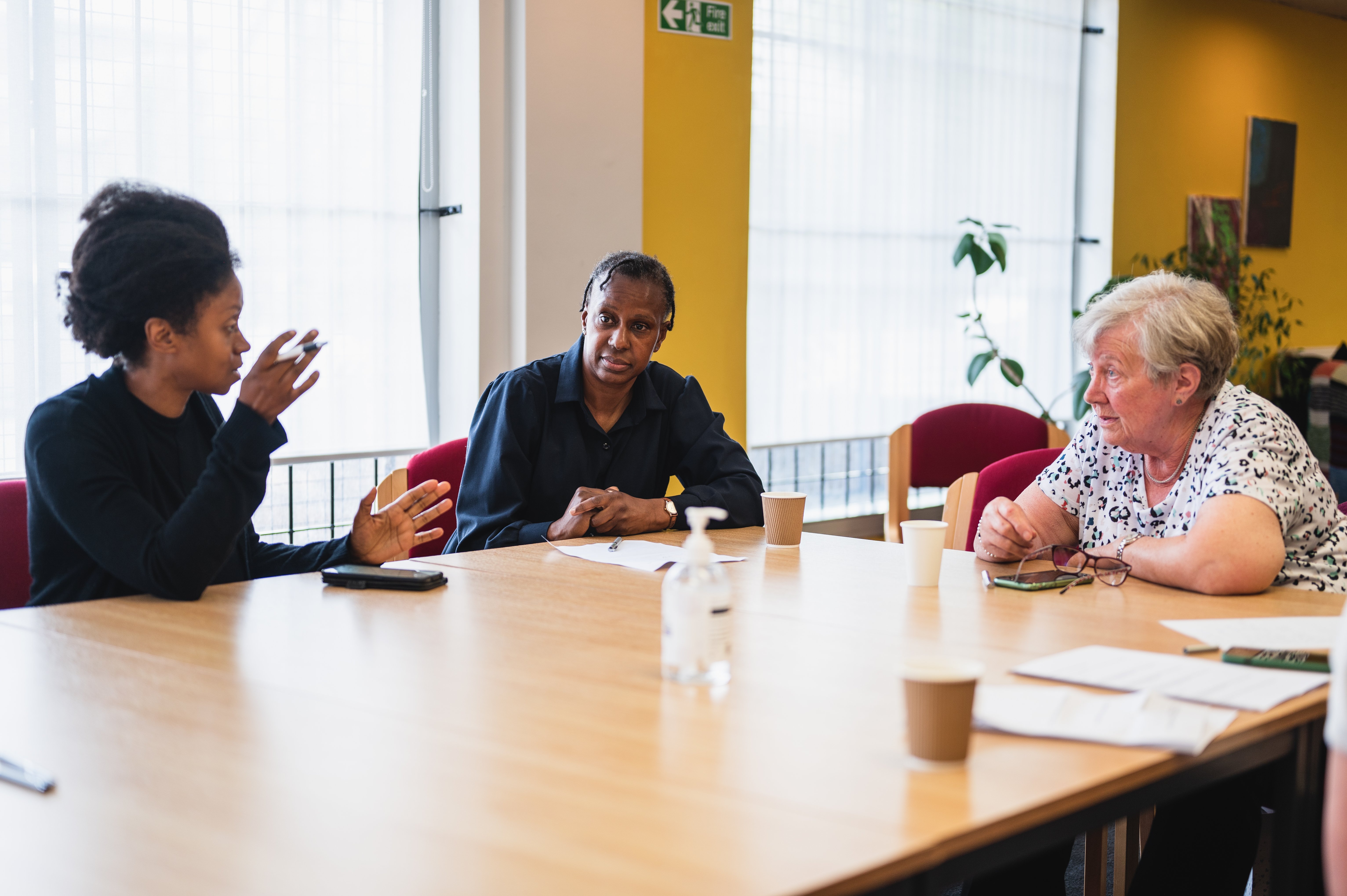
We believe in supporting people to thrive, to be involved with the design, implementation and review of services and systems and their environment in a meaningful and conscious way.
We believe that through co-production we create pathways, communication and a focus of resources that support the best outcomes for everyone. This is particularly important when viewing access and support needs through the prism of inequalities.
Co-production is a way of building a shared vision that can be both empowering and effective. Supporting people to build inclusive services whilst helping systems manage finance and resource more effectively.
To help guide us through our work, we've created our five principles of co-production. These principles reflect our commitment to co-production, and set out how we will work with people to improve health and social care services in the local area whilst embodying our trauma informed ethos.

Healthwatch Bath and North East Somerset’s co-production principles
-
Accessibility. Meeting people in an environment that is safe, meaningful and supportive for them
-
Trust. Building relationships, communicating with each other and being open about how we work alongside each other
-
Kindness. People have different experience, different skills and different needs. We want people to be able to share their views knowing that they will be treated with respect.
-
Time. We work in a complex system where services are constantly changing. We recognise this may not always feel helpful and it may feel that there is no time for reflection. We choose to empower service users and support service providers to work together to create shared expectations.
-
Connectedness. When we work together within a sense of equity we are able to empathise, share skills, build shared values and work towards a collective goal
Examples of our co-produced work
Please see examples of our co-produced work